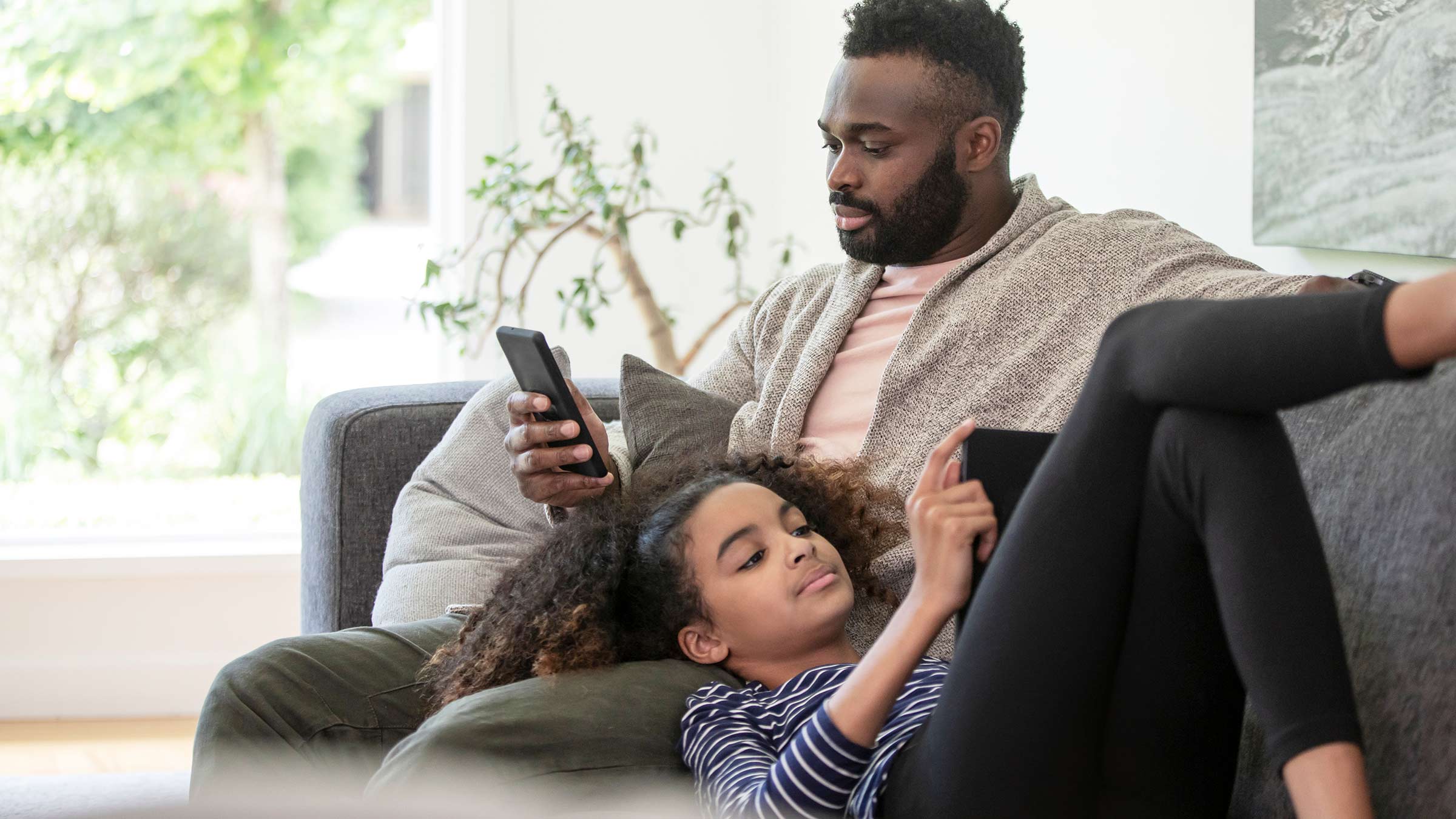
With many of us spending a lot of time in front of computer screens and phones, on apps and Facebook, at all hours, it’s natural to wonder: Is it harming us?
It could be, especially if you’re in front of a screen close to bedtime or even during the day if you’re not taking enough breaks.
Screen time has been shown to cheat us out of sleep and hinder our mental health.
Screen time and sleep
Scrolling on your phone or laptop before you go to bed could make it harder for you to fall asleep or stay asleep, possibly leading to chronic sleep deprivation.
At night, exposing your eyes to the artificial light that screens put off can hinder your sleep as well as your alertness and mood the next day. Nighttime light exposure can trick our brain’s master clock to think it’s daytime, which in turn can slow the body’s production of melatonin, a hormone our brain produces that helps us sleep.
As you move closer to a screen, you expose yourself to more light. The light exposure from watching a television on the other side of the room is less than the exposure from scrolling on a phone, using an app, or staring at a laptop screen. The more blue light you’re exposed to, the greater the risk of insomnia.
In the middle of the night, sometimes you might have trouble sleeping and do exactly what makes it harder to get back to sleep: You reach for your phone.
Chronic sleep deprivation can cause distractedness, memory problems and potentially depression and anxiety. But we need to respond to texts and emails and work in front of screens, so what do we do?
Choose a book over your phone before bed
It’s best to avoid your phone at least one hour before you plan to fall asleep. That can be challenging for many of us. Still, if you want to be able to sleep and have good quality sleep – not waking several times — you’ll need to try to discipline yourself to pick up a book instead of your phone or laptop before you lay your head on a pillow.
During the day, if you’re sitting at a screen a lot, take breaks at least every three to four hours. Your ability to change focus from near to far can be strained with excessive screen time. When eyes are focused close-up for long periods, they can have a tough time adjusting to seeing in the distance. And that can cause eye strain and potentially headaches.
What’s a healthy amount of screen time?
We don’t think there’s a known answer for that. People need to have a strategy to avoid using their phones and laptops so that it’s not an all day-and-into-the-night habit. If you have no way to avoid using your devices before going to bed, you can use filters on the devices that can reduce the amount of blue light they give off.
Can too much screen time affect your vision?
Most screens aren’t bright enough to physically damage your eyes. Sunlight consists of mostly blue light, which is the light your computer screen puts out, but a computer screen is 1,000 to 10,000 times dimmer than the light on a sunny afternoon.
Your screen is not putting out enough light to harm the retina, the tissue responsible for your vision.
Screen time and dry eyes
Screen time can cause your eyes to get tired or even hurt. When you stare at a screen, you blink about half as often as you do when your face isn’t in front of a screen. And if you’re not blinking enough, the film of tears on the front of your eye degrades. Your eyes can get dry because you’re not producing enough tears and you don’t spread them across your eyes well. Your eyes can feel gritty, burning and tired.
Before you sit down to your computer for several hours, putting artificial tears in your eyes can prevent them from drying out.
Does screen time decrease IQ?
Screen time won’t reduce IQ points directly. However, being in front of a screen stimulates fewer senses than being outside or interacting with others. We think of screens as stimulating and captivating, but screens only stimulate your senses of sight and hearing, whereas getting outside or interacting with people can engage many more senses.
Screen time and mental health
Whether at night or during the day, using screens for long periods has been associated with higher rates of depression, anxiety and other mental health disorders in adults and children. In one study, children who used screens for seven hours a day were twice as likely to develop anxiety or depression than children who used screens for an hour or less a day.
Apps and social media outlets are designed to keep you glued to them. Try to use them with caution and part with them at least an hour before you flip off all the lights and call it a night.

Help for mental health conditions
Ohio State offers personalized, compassionate care for your mental health concerns.
Learn more





